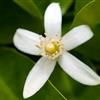
“তোমরা আমাকে রক্ত দাও, আমি তোমাদের স্বাধীনতা দেব ।”
"Tum Mujhe Khoon Do, Main Tumhe Azadi Dunga."
"Give me blood and I will give you freedom."

It was the late nineteenth century. Our motherland, India, was under British rule. The Indians were abused, deprived, and oppressed by the British. It was at this time that an exceptionally brave and legendary leader of India was born, whose name was none other than Subhas Chandra Bose, popularly known as Netaji.

All of us Indians know how much Netaji Subhas Chandra Bose's contribution is behind the nation-building and independence of our country. The forceful tactics he utilised to win independence, along with his brilliant socialist policies, are what made him unique. He believed that freedom cannot be given; it must be taken. He raised and founded Indian National Army (INA) or Azad Hind Fauj while he was living in Singapore after escaping British rule in India. He made numerous contributions for earning India’s independence from British power. However, his death (when & how exactly he died) still remains shrouded in mystery.

While Gandhi was a firm believer in ahimsa (non-violence), Subhas believed Gandhi’s strategy based on non-violence was insufficient to earn our freedom and that violence alone could oust the alien imperialist British rule from India.

Subhas Chandra Bose is truly the pride of our country and a brilliant and successful pioneer of the Indian freedom struggle who devoted his entire life to this movement. He has been a source of inspiration for all the Indians, especially Bengalees, throughout the ages. Today, January 23, 2023, is the 126th birth anniversary of the fiery nationalist and the invincible hero of the Indian freedom struggle movement, Netaji Subhas Chandra Bose. His patriotism has left an everlasting impression on many Indians. Netaji built the Rani Jhansi Regiment, an all-women corps of soldiers. He is a memorable figure in the history of armed movements not only in India but all over the world.

Subhas Chandra Bose was elected president of the Indian National Congress (INC) for two consecutive terms. But he had to resign due to his ideological clashes with Gandhi and his open criticism of Congress's foreign and domestic policies.

The manner in which Netaji waged a mortal struggle against British power still gives us goosebumps. This day is now officially called "Parakram Diwas" to celebrate the unmatched valour and courage of Netaji. Last year on this day, our Prime Minister unveiled a towering statue of Netaji at Kartavya Path in New Delhi.

This greatest revolutionary was born on January 23, 1897, in the city of Cuttack, Orissa. His mother was Prabhavati Devi and his father, Janaki Nath Bose, was a famous lawyer, whose family hailed from the village of Kodalia in South Bengal. Among the fourteen siblings, Subhas (who was called "Subhi" by his loved ones) was the ninth child.

Initially, Subhas was admitted to the Protestant European School of Cuttack, which was an English-medium school, and the students there were mainly Europeans or Anglo-Indians of mixed British and Indian ancestry. No Indian vernacular languages were being taught in this school. The school predominantly tried to impose European culture on its students. Subhas did not like the environment at this European school and there was discrimination against Indians there. He always felt that there was a vast India outside the four walls of this school and that India was calling him. At the age of 12, Subhas was admitted to the Ravenshaw Collegiate School in Cuttack, where Indian languages such as Bengali and Sanskrit were being taught very well. The headmaster of this school was Benimadhav Das, an ardent Nationalist, whose influence on Subhas's entire life was immense and he had given a new impetus to his life.

During this time, Subhas became hugely inspired by the works of the gigantic spiritual leader of India, Swami Vivekananda.
“ওঠো , জাগো এবং লক্ষ্যে না পৌঁছানো পর্যন্ত থেমো না।”
"Arise, awake, and stop not, till the goal is reached."
Especially this slogan of Swami Vivekananda greatly influenced Subhas and helped to shape his life in the coming years.

Subhas was an extremely bright and brilliant student who achieved second place in the matriculation exam. He joined Presidency College, a reputed institution in Calcutta (now Kolkata). But he was expelled from that college for expressing his nationalist sentiments. Oaten, a professor in that college, was beaten up with sandals by Subhas and a few students for his rude remarks about the culture of India and his racist behaviour towards his Indian students, and they allegedly threw him down the staircase of the college. Subhas was expelled from Presidency College for his involvement in this incident.

Later, Subhas was admitted to Scottish Church College, another reputed college in Calcutta, with the help of Asutosh Mukherjee, the then Vice-Chancellor of Calcutta University. He graduated in philosophy honours from that college under the University of Calcutta with flying colours.

In 1919, Subhas Chandra Bose had to leave India and move to England to prepare for and appear for the Indian Civil Service (ICS) examination because of his father's keen interest. Although he cleared the ICS examination and achieved the fourth position on his very first attempt, he did not want to work under any foreign government. So he decided to resign from that job in 1921 and returned to India after receiving the appointment letter.

After returning from England, Subhas became the disciple of "Deshbandhu" Chittaranjan Das, also known as C. R. Das, a renowned lawyer and political activist who launched Subhas into nationalist politics and the Indian freedom struggle movement. Under C.R. Das's mentorship, Subhas started the newspaper "Swaraj" and took charge of the Bengal Provincial Congress Committee.



























comment:
p_commentcount